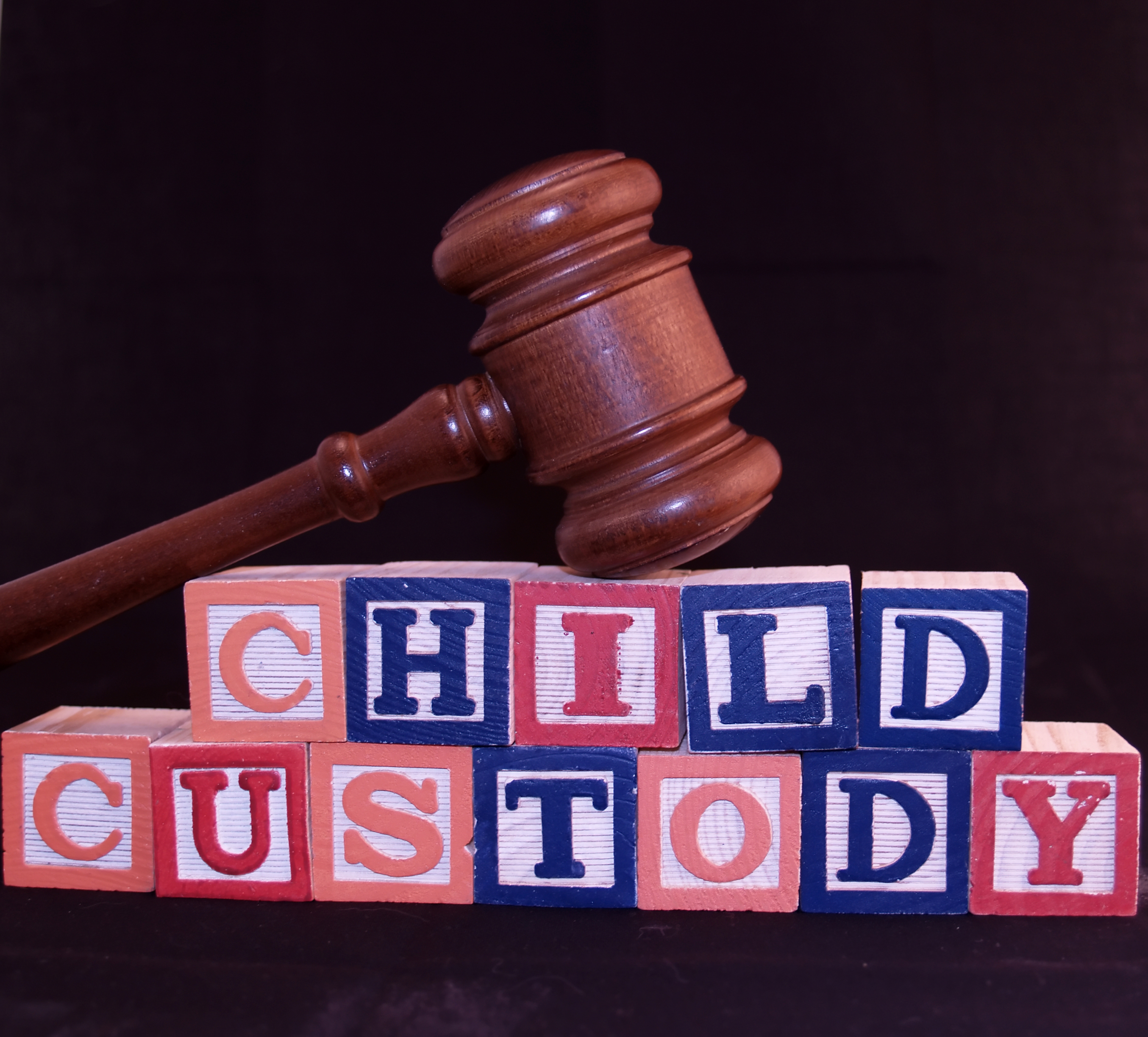![]()
Table of Contents
How Parental Alienation Impacts Child Custody Cases
Parental alienation harms the children. It can also be used as a factor in both child custody decisions and in whether child support should be suspended. When parental alienation occurs in a divorce it will make the divorce dramatically more expensive. It is not uncommon for the cost to exceed $100,000. It also lengthens the divorce process.
At its core, parental alienation involves one parent turning their child against the other parent, without justified cause, leading to significant emotional distress and instability in the child’s life. This manipulation not only strains the parent-child relationship but also complicates child support and custody proceedings, making it a critical issue for both families and legal professionals to address.
How Courts Identify Parental Alienation
Signs and Evidence Considered
When assessing potential cases of parental alienation, courts meticulously examine a variety of signs and evidence. Key indicators include the child’s unjustified rejection of the targeted parent, which may manifest as unreasonably negative beliefs and feelings that are disproportionate to their actual experiences with that parent. Behavioral patterns such as the child’s irrational criticism and refusal to see a loving parent are scrutinized.
Keep in mind, while this is your first custodial battle, the court see these type of case many times, a week. In custody cases we see that same facts repeated over and over again. The Judges quickly become familiar with custody fact patterns and many become very adapt and getting to the heart of the matter.
Also, keep in mind, that the Judge are not concerned with your hurt feelings. Issues of infidelity or even domestic violence, unless directed to the children, do not enter into the judge’s considerations.
What the Judges do consider is:
- Documented instances of one parent bad-mouthing the other to the child, including making false accusations of neglect or abuse
- Records of communication between parents that might show one parent undermining the other, such as texts or emails.
- Changes in the child’s behavior during and after the separation, especially if they suddenly reject a previously close parent.
Physical evidence, including social media posts and text messages where the alienating parent disparages the other, is also crucial. This type of evidence helps to establish a pattern of behavior that supports claims of alienation.
Professional Testimonies and Evaluations About Parental Alienation
Professional testimonies play a pivotal role in court decisions regarding parental alienation. Mental health professionals, such as psychologists or therapists, may provide insights into the child’s mental state and the dynamics within the family. They assess whether the child’s aversion to the targeted parent is a result of manipulation or genuine estrangement.
The courts may appoint a psychologist or psychiatrist to examine the children, the parents, and other people who have contact with the children. This is called a “forensic report” and can cost upwards of $45,000 to produce. The parties will pay for this, not the court. It also takes several months.
Evaluators look for:
- Consistency in the child’s negative views about the targeted parent across different settings and sources
- The influence of the alienating parent on the child’s perceptions, which may involve detailed evaluations of the parent-child interactions
Courts also rely on testimonies from school teachers, family members, and other individuals who have observed the family’s dynamics. These observations help to corroborate or refute claims of alienation.
The Judge is not allowed to blindly accept the findings of the forensic evaluator, but can take it into consideration when coming to its conclusion. A person is still entitled to go to trial even if the forensic report goes against them. The forensic evaluator will be called to testify, and be subject to cross-examination.
In high-conflict custody cases, it is essential for evaluators to conduct thorough investigations to ensure that any allegations of parental alienation are well-substantiated. This includes tracking down the origins of the child’s beliefs and verifying their accuracy . Failure to conduct a detailed investigation can lead to the perpetuation of false allegations, which can significantly impact the family’s well-being and the child’s relationship with both parents.
By integrating these professional evaluations and testimonies with the observed signs and documented evidence, courts can make more informed decisions that prioritize the child’s best interests while addressing the complex issue of parental alienation.
The Attorney for the Child (AFC) and Parental Alienation
In a New York custody battle, the court will often appoint an attorney for the child, called appropriately enough, the Attorney for the Child (AFC). New York used to call them “Law Guardians” and other states call them “Guardians ad litem.”
New York calls them AFCs to highlight that they are attorneys who represent the interests of the children. Here’s a link to an article I wrote on the AFC and its unique role in the custodial process.
The parties will pay the cost for this attorney. I want to highlight here the cost of a cost custody battle. Beyond the damage parental alienation does to your child, it will destroy your finances. You will pay your lawyer tens of thousands of dollars, pay the forensic examiner tens of thousands of dollars, and pay the AFC tens of thousands of dollars. This is on top of the tens of thousands of dollars to pay for your child’s therapy caused by the alienation.
My question is: do you really have hundreds of thousands of dollars to spend just to keep your ex away from the children? It the severe psychological damage to your child worth it? And as I discuss below, there is the rebound effect. Many children come to hate the alienator and cut off all ties to them. So, you could end up losing your children as well.
Legal Outcomes of Parental Alienation
When you encounter parental alienation in child custody cases, the legal outcomes can vary significantly, often depending on how well the alienation is documented and proven in court. Here are some of the potential legal ramifications:
Custody Loss
In some cases, allegations of parental alienation have profound impacts on custody decisions. A study funded by the U.S. Justice Department in 2020 revealed that when mothers allege abuse and fathers counterclaim with accusations of parental alienation, it roughly doubles the chances of the mother losing custody. This outcome underscores the critical nature of how parental alienation claims are perceived and handled in the courtroom. Additionally, another study indicated that judges might award custody to an abusive parent if the mother is not viewed as credible, often influenced by claims of psychological instability or parental alienation
Supervised Visitation
Courts are increasingly recognizing the need to protect children from the potentially harmful effects of parental alienation. If one parent can demonstrate that the other parent is engaging in behavior that alienates the child, the court may decide to limit that parent’s contact with the child. This could range from reduced visitation rights to supervised visitation scenarios. The primary aim is to safeguard the child’s well-being while maintaining their right to have relationships with both parents, albeit in a controlled environment that monitors and prevents further alienation.
In more severe cases, evidence of parental alienation might lead to the alienated parent receiving full custody, especially if the alienating behavior is blatant and demonstrably harmful to the child’s mental and emotional health. Courts take these decisions very seriously, often requiring substantial evidence and professional testimonies to ensure that the child’s best interests are being served.
Understanding these potential legal outcomes is crucial for any parent involved in a custody dispute where parental alienation is suspected. It’s essential to gather comprehensive evidence and possibly seek professional legal and psychological support to navigate these complex situations effectively.
Loss of Child Support
The Court can also suspend or terminate child support if it finds that the custodial parent has engaged in alienation.
The courts can do this to make it clear to the alienating parent that there are consequences. Often when the child support is cut off, the alienator suddenly becomes cooperative.
Role of Family Law in Addressing Parental Alienation
Laws and Regulations
Family law plays a pivotal role in addressing the complexities of parental alienation, a situation where one parent may deliberately undermine the child’s relationship with the other parent. This can have severe emotional and psychological effects on the child. Currently, there is no specific law that directly addresses parental alienation, which presents challenges in legal proceedings. However, family courts often consider the child’s behavior and the dynamics between the parent and child as evidence of parental alienation. In such cases, a judge might order a custody evaluation to further investigate the claims
When one parent is found to be obstructing the child’s relationship with the other parent, it can significantly impact their custody case. Courts typically examine whether a parent supports the child’s relationship with the other parent as a critical factor in determining custody arrangements . This scrutiny is part of a broader effort to protect the child’s welfare and ensure that both parents have an opportunity to maintain a healthy relationship with their child, barring any legitimate safety concerns.
Supporting the Child’s Best Interests
Psychological Support
Parental alienation is identified as a form of emotional child abuse with serious implications for the affected children. The emotional toll includes an impaired ability to form and maintain relationships, a diminished self-image, and the potential development of guilt, anxiety, and depression. These children often struggle with educational disruptions and may exhibit a lack of impulse control, which can escalate to delinquent behavior.
To address these issues, family therapists and mental health professionals recommend a treatment approach that involves both the child and the targeted parent. This method, known as “parent-child relational problem” therapy, is crucial for repairing and maintaining the parent-child relationship. It is also essential that the alienating parent undergo therapy to cease their detrimental behavior.
In severe cases, courts may mandate specific therapies aimed at reuniting the child with the alienated parent, underscoring the legal system’s role in facilitating these critical reunifications . Compliance with these therapeutic interventions is not only a legal obligation but also a moral imperative to restore the child’s well-being.
Legal Safeguards
The legal framework surrounding parental alienation aims to protect the child’s best interests while ensuring justice for the alienated parent. Recognizing the severe impact of parental alienation, some jurisdictions treat extreme cases as criminal behavior due to the significant emotional damage inflicted on the child.
Legal interventions often include modifying custody arrangements to ensure the child has substantial and positive contact with the alienated parent. This strategy helps mitigate the effects of the alienating parent’s behavior. In instances where the alienation is profound, the court may limit the alienating parent’s access to the child, requiring supervised visitation to monitor and prevent further damaging actions.
Furthermore, family law courts are encouraged to adopt non-adversarial dispute resolutions, such as structured family mediation, to address parental conflicts more effectively. This approach not only aids in reducing the emotional strain on all parties involved but also promotes a more amicable resolution that prioritizes the child’s needs.
By implementing these psychological supports and legal safeguards, the aim is to shield children from the adverse effects of parental alienation and ensure their ability to thrive in a stable and loving environment.
The Rebound Effect
The Alienating Parent will often become victim to the “rebound effect.” This is where the child turns against the alienator. It is a very common phenomenon.
Basically, the child comes to resent the alienator and forms a close relationship with the previously alienated parent. I have seen this many times, and in the most severe instances, the child cuts off all communication with the alienating parent.
Conclusion
When parental alienation occurs, there are no winners. It leads to psychological damage to the children, insanely high legal costs and psychological damage to the parties.
The courts try very hard to be fair but as the facts get messy and murky, the lines get blurred and the results less certain.
It remains evident that tackling parental alienation requires a nuanced approach, combining legal intervention with psychological support. For families navigating these challenges, seeking professional advice becomes crucial to understanding the implications of parental alienation on child custody and the necessary steps to mitigate its effects. For personalized guidance tailored to your unique situation, call Port and Sava tel:516-352-2999 for a free 15-minute telephone consultation. Equipping yourself with the right information and support can pave the way toward resolving these disputes in a manner that honors the child’s needs and the family’s integrity, steering towards a resolution that fosters healing and positive familial bonds.
FAQs
1. Can parental alienation lead to a loss of custody?Yes, parental alienation can result in a loss of custody. This occurs when one parent damages the child’s relationship with the other parent, demonstrating an inability to co-parent effectively. Engaging in such behavior can lead to the revocation of custody rights.
2. What is the typical judicial response to parental alienation in custody cases?Judges generally view parental alienation very seriously as it goes against the child’s best interests. Most judges respond negatively to any actions that reflect parental alienation.
3. What are the effects of parental alienation on a child? Parental alienation can cause significant emotional distress for children. It often leads to emotional issues such as anxiety, depression, and low self-esteem.
4. How can one demonstrate proof of narcissistic parental alienation in court?To prove narcissistic parental alienation, you might use several types of evidence, including:
- Testimony from therapists or counselors who can provide insights based on their professional observations of the child.
- Accounts from witnesses who have observed the alienation.
- Relevant social media posts.
- Documented communications such as text messages, emails, and voicemails.








